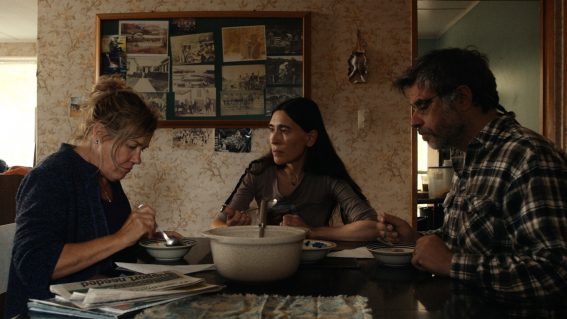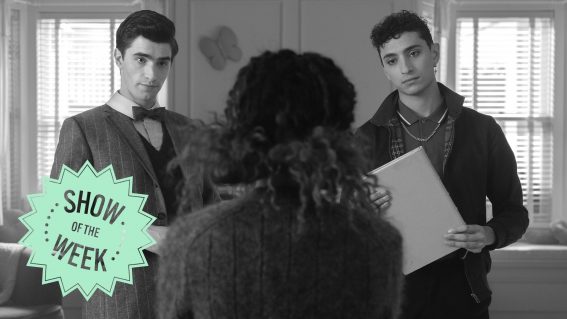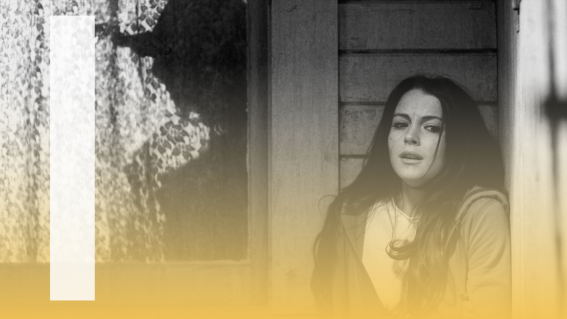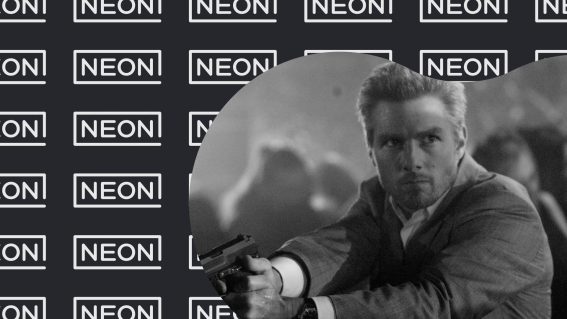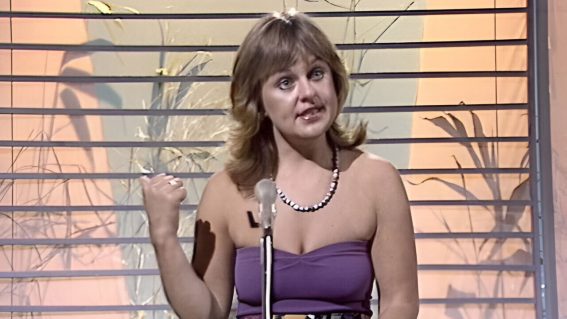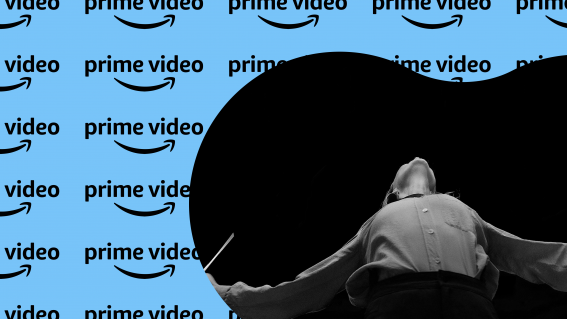Docuseries Branson looks beyond the billionaire’s spin and sensationalism
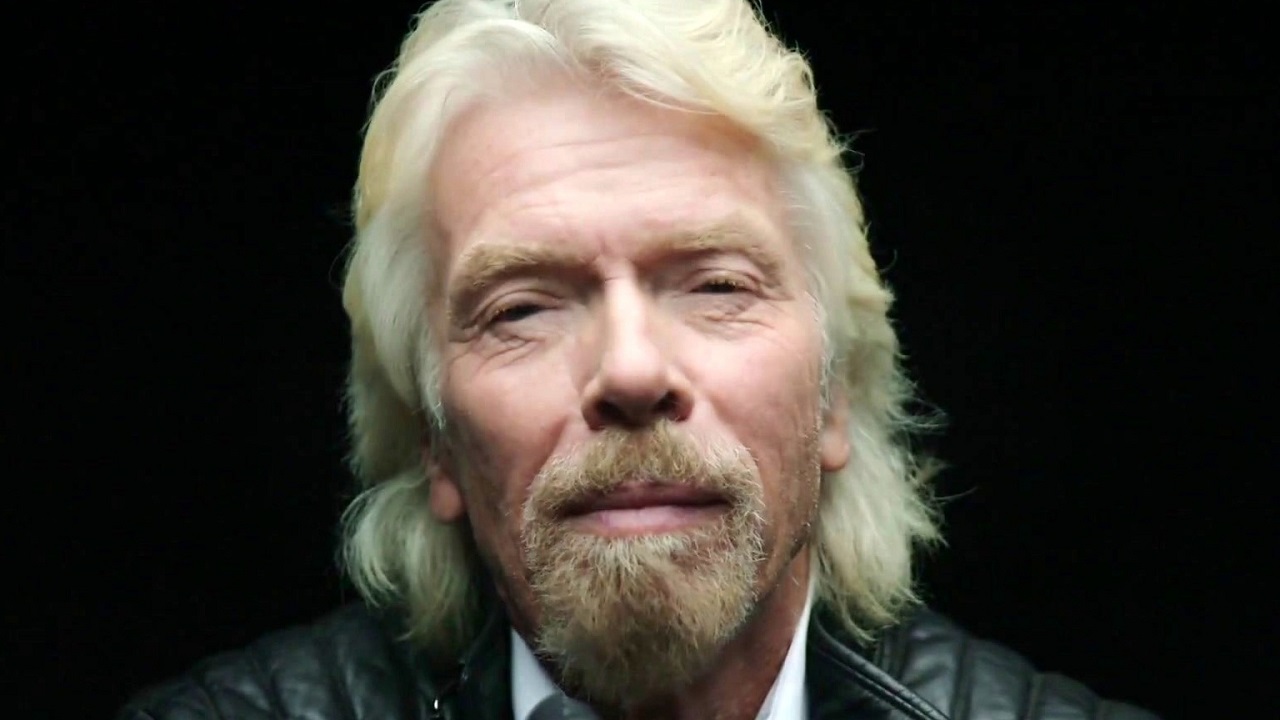

Billionaire entrepreneur and thrill-seeker Richard Branson’s life is chronicled from first record store to latest spaceship in new docuseries Branson – streaming on Neon. Adam Fresco finds it highly watchable, posing tougher questions of Branson than expected.
Sir Richard Branson. Multi-millionaire British mogul. Founder of Virgin Records. Director of the record company that became an airline and, in Virgin Galactic, a business poised to lead space-age tourism. And now the subject of a four-hour, four-part documentary series Branson—a surprisingly frank, warts-and-all peek behind the white-haired billionaire’s goatee beard.
Far from the hagiography I feared going in, this documentary is thankfully not a thinly disguised marketing ploy, or uncritical love-in dedicated to its subject. Rather it is a highly watchable, often critical, unvarnished look at Branson’s life, enterprises, daredevil exploits, and risky business practices.
The first episode, titled Words and Music, sees director Chris Smith grab attention from the outset, with the seventy-year-old Branson recording a farewell video message to his family. As the title card explains, it’s “Friday June 25th 2021. Sixteen days before Richard Branson will fly into space.” Ensconced in Necker Island, his aptly located British Virgin Island luxury villa, the billionaire is introduced recording a video to be played in the event of his death, should his upcoming space voyage end in disaster.
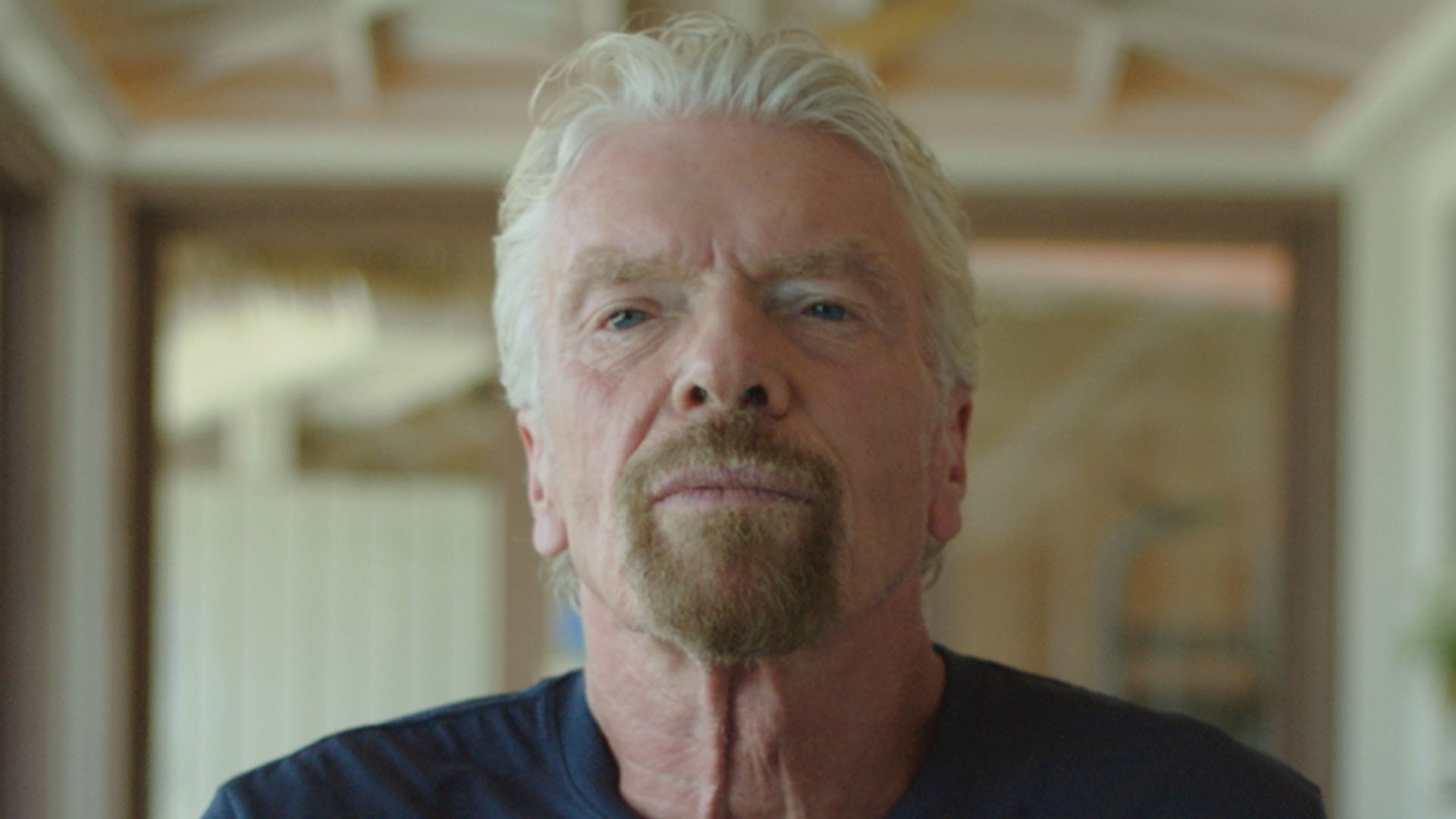
It’s hard to feel too bad for the private island and spaceship-owning entrepreneur, but watching Branson break down in tears as he falteringly attempts multiple takes certainly serves to humanise a figure who has always been larger than life. From his risk-taking in the business world to his daring ballooning, adventuring, racing, and flying, Branson embodies the dare-all antics of Tom Cruise doing his own stunts, and the high-rolling, devil-may-care attitude of a professional gambler betting everything on red, and coming up flush almost every time. Almost.
Having caught our attention with Branson’s would-be video message from beyond the grave, the documentary quickly builds his backstory. But it’s not all a puff piece about an admirable antagonist. Branson’s knack for self-aggrandising publicity is always apparent, as is his desire to maintain the myth he’s constructed so carefully of his life as one of a daring adventurer, entrepreneur, and all-round goatee-bearded nice guy.
In the first episode, the subject may serve as narrator of his own tale, but Smith’s direction never shies away from seeking what’s beyond the spin and sensationalism of Branson’s self-perpetuated rags-to-riches story. Because, of course, the Virgin boss never started in rags.
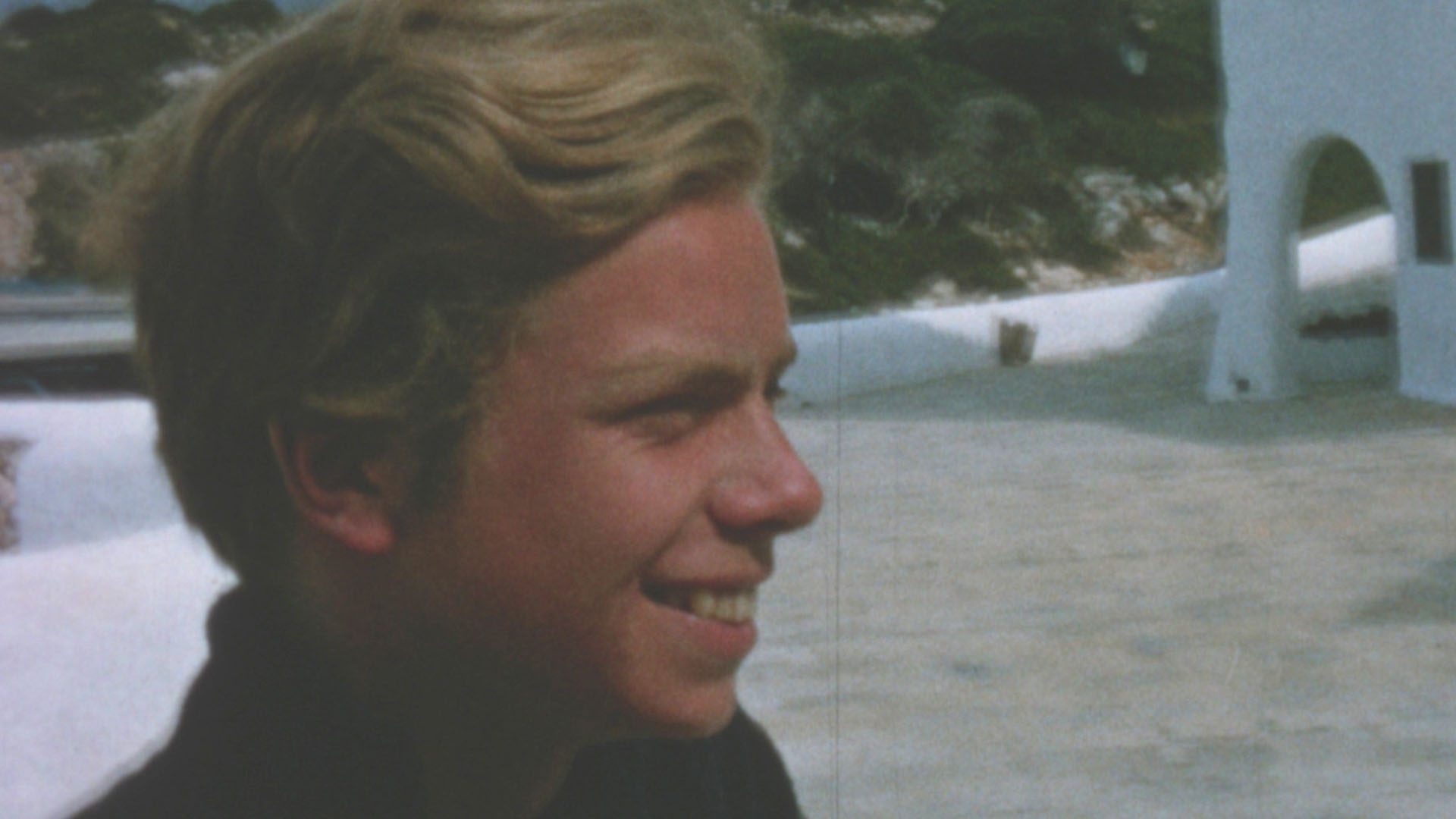
The son of comfortably middle-class, British parents, (his mum ran several businesses, his dad was a barrister), Branson attended private school. Claiming he dropped out of school due to his dyslexia, Branson became a businessman at fifteen, publishing the magazine ‘Student.’ It was in the small ads on his magazine’s pages that he first ventured into selling cut-price vinyl.
Despite an early run-in with British tax authorities over a less than legit scheme to avoid paying duties, Branson, aided by a substantial loan from his aunt, opened his first high street Virgin Records and Tapes store. After acquiring The Manor recording studio, Branson started the Virgin Music label, and became a millionaire at twenty-two, backing young musician Mike Oldfield, whose 1973 album Tubular Bells is printing piles of cash to this very day.
From there, it’s no simple case of rise and rise. In fact, when Virgin famously snatched up notorious UK punk pioneers The Sex Pistols, Branson’s company was half-a-million quid in debt. But the bet paid off, and Virgin backed enough legendary artists, (and long-forgotten one-hit wonders), to build an empire.
Crammed with entertaining clips from the video vaults, this documentary is packed with fascinating moments and memories, from Branson piloting his balloon over the Atlantic in a daring aeronautical adventure, to pushing back police trying to board a boat on the River Thames, as The Sex Pistols play God Save the Queen outside the Houses of Parliament.
Whilst the first episode is largely told by Branson himself, there are plenty of other voices, archival footage, and home videos, featuring an array of friends, family, colleagues, and critics, joining the choir of commentators. As John Arlidge of Britain’s Sunday Times newspaper says of the billionaire he has written about over decades: “Don’t be fooled by the packaging. Underneath there is a very determined, very successful, very hard-nosed businessman.”
For some, Branson came across as a cuddly, bearded, wool-jumper-wearing hippie—a well-meaning buffoon, who lucked out, despite his naive nature. For others, the folksy exterior hid a killer instinct and clear focus on the bottom line, expansion, and yet more profit, by a businessman with market savvy and the Midas touch, which saw him leap from the record industry to aviation with Virgin Atlantic.

There’s a neat montage near the start of the first episode, featuring an array of voices calling out Branson—the myth, and the man behind the hype. One voice declares him “the Leonardo DiCaprio of the business world”, another as “the world’s biggest hypocrite”, “a Billionaire who lives on his own private fucking island”, “a man who hasn’t paid personal tax in the UK for years”, whilst another hails him as “incredible”, an adventurer, who “causes change”, a man set to be the first person to reach space in his own craft, spending big to leave the planet whilst the earth is in peril, all the while claiming to be an environmentalist… with his own private jet, airline, and spaceship.
It’s Branson’s seeming incongruity, his conflicting words and deeds, and the vastly different assessments of his accomplishments and the means he used to achieve them that make him such a fascinating subject. Looking back now, Virgin’s move into the airline business is seen as a savvy move. But then, hindsight is a luxurious thing. At the time, taking on the big players in airline travel was a hugely costly and enormously risky endeavour. As Branson once remarked, “If you want to be a millionaire, start with a billion dollars and launch a new airline.”
His positivity in the face of almost certain disaster is certainly inspiring. “Failure is only the end if you decide to stop,” he’s noted. Despite the odds stacked against him, Branson made Virgin Atlantic a success. But whether his successes are due to heroic fortitude and business acumen or pig-headed stubbornness and sheer dumb luck is up to the viewer. After all, we’re dealing here with the man who named his autobiography: Losing My Virginity and wrote a book under the not-so-subtle title: Screw It, Let’s Do It: Lessons In Life.
Branson’s taste for daring (and hugely expensive) adventures, sports, sailing, and ballooning exploits are all part of his legendary taste for the high life, as is his purchase of a private island home. Which seems at odds with his attempts to depict himself as an ordinary everyman—a businessman who values delegation and teamwork above all. Beliefs that are hard to reconcile in light of his comment: “I believe in benevolent dictatorship, provided I am the dictator.”
Still, the contradictions of the super-rich trying to convince themselves they are just like the rest of us makes for fascinating, and often humorous, viewing. Despite these moments of unintentional comedy, Branson’s clearly no fool, and his quick wit and intelligence are apparent. But just as his sense of humour comes across, so occasionally do his tendencies to bristle at criticism, and to deflect and avoid direct answers when it suits him.
From record shops and a record label, to banking, beauty products, and eventually space travel, Branson is a hot mess of contradictions, a billionaire with several charity organisations to his name, and a campaigning environmentalist, who famously stated: “The true cost to the world of a burger is far greater than the money you hand over to buy it”—even as his businesses and personal adventures burn fuel literally by the rocket load.
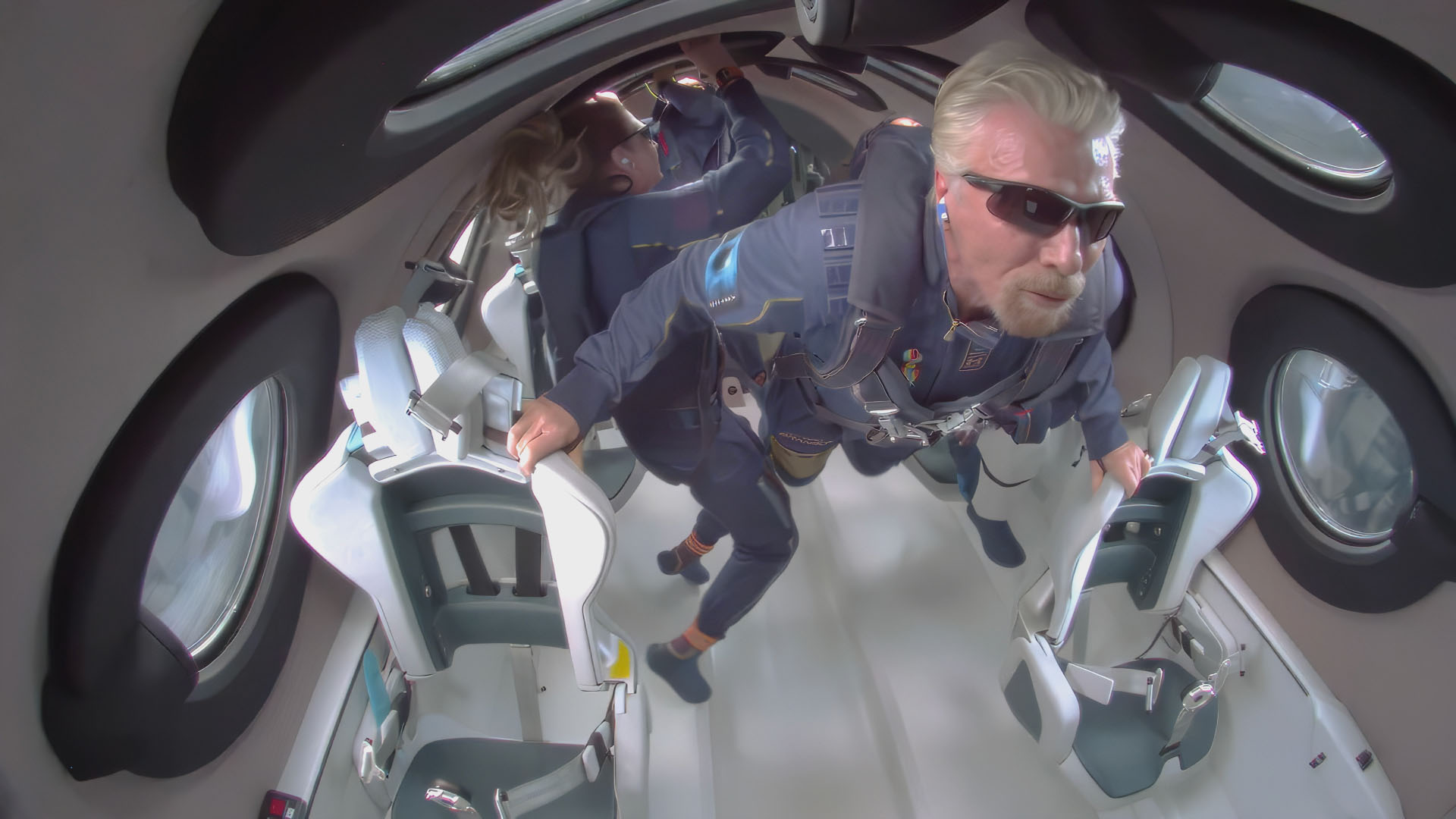
Recounting his journey from hippie counterculture magazine publisher, through his record shops, music label, airline, and space tourism venture, Branson provides an entertaining, lively, and balanced insight into the life and times of one of Britain’s most successful modern moguls. The ace up its sleeve is that whilst the man himself takes centre stage, his narration and self-aggrandisation are balanced by the inclusion of alternative voices and views.
It may not be (finger quotes) The Truth, but it sure ain’t pure, 100%-certified, self-serving, Virgin-manufactured BS either. It’s great to see the self-proclaimed champion of the environment challenged on the role of his many business ventures in polluting the planet, and sidestepping the pandemic. There may be no answers offered, and certainly no apologies forthcoming, but just watching the billionaire squirming as the difficult questions are posed is revealing enough. Holding a mirror up to hypocrisy is like pointing out the Emperor has no clothes, and it’s always fascinating to see what fig-leaf they reach for to cover their exposed privates.
Maybe, for a billionaire in their seventies, who’s nursed a lifelong obsession with his own brand and image, just being willing to let someone hold up a mirror to reality is enough.
All up, Branson proves four hours well spent with a never less than fascinating subject, who achieved a great deal at great cost (often to others, and the environment). The series offers a solid introduction for Virgin virgins and anyone wanting to know more about the man. Those familiar with its subject may not find much about Branson’s well-chronicled history, but this remains a fascinating peek behind the billion-dollar curtain. No simple hagiography, or offering undue reverence, Branson is a series that raises many questions about sheer wealth and arbitrarily amassed power as modern measures of success.




